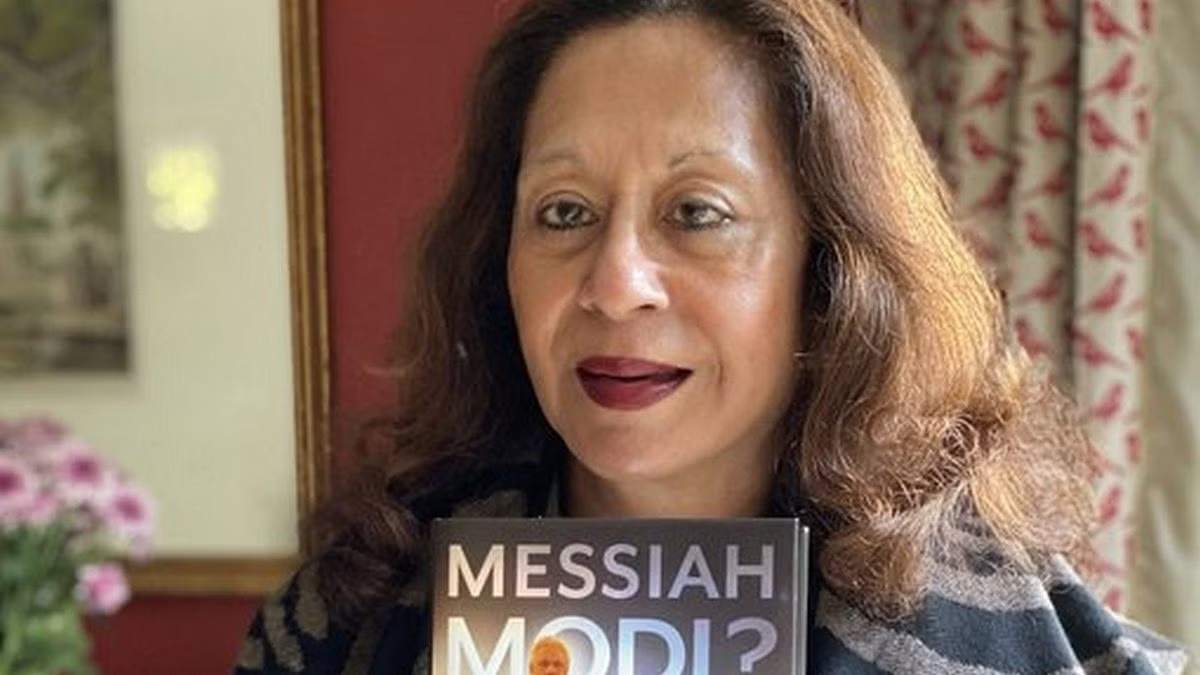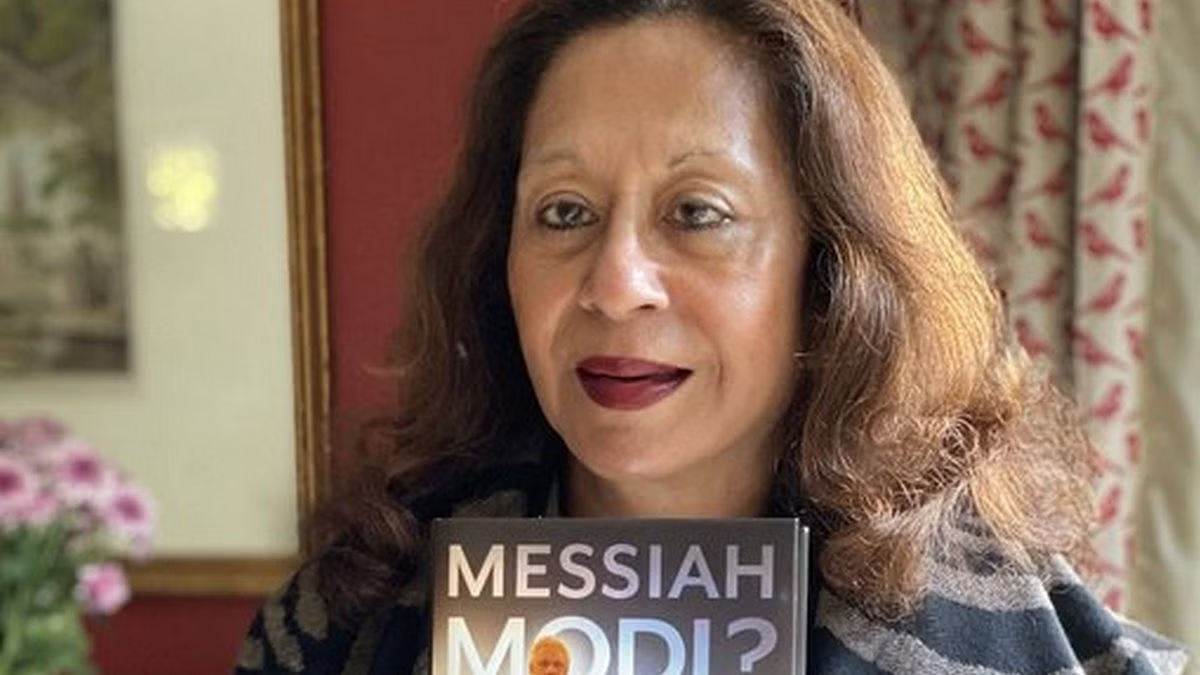
.png) Ram Puniyani
Ram Puniyani

Tavleen Singh is a well-known columnist. In a recent column (Religiosity is Sick, not Secularism, IE, December 8, 2024), it writes about the barring of women from studying medicine in Afghanistan. She is correctly aghast at this retrograde step in Afghanistan by the ruling Taliban. She thinks the left liberals have an empathetic attitude towards the Taliban, as not many left-liberals have not condemned this step. One is not sure whether this is the correct view of assessing the liberal view towards the Taliban or ruling Iran (with a similar attitude to women). She is also critical of those who equate the policies and actions of Hindu Nationalists as being similar to those of the Taliban.
It is true that the degree of intensity of the policies of these two, Hindu Nationalism and Taliban, are slightly different for now. However, if one digs deep into the issue, one can see the fundamental similarities between these types of politics. The Taliban policies towards women and the attitude of many Gulf countries and Iran are similar but not exactly the same. No two countries express their policies on the exact same lines. Still, one can discern the similarities at the level of principles.
Fundamentalism emerged mainly in these countries in the 1980s when Ayatollah Khomeini came to power in Iran and drastically changed the social landscape. While at a superficial level, fundamentalism means going to the fundamentals, it is not just that. Fundamentalism is the imposition of selected parts of religious traditions into society through state power. This is often done not by the ruling government but by dominant political tendencies.
These impositions are predominantly conservative, retrograde and oppressive not only to women but also to the other weaker sections of society. Fundamentalism always strengthens itself by creating an internal or external enemy. In most of the Gulf countries, women are the primary target. Others present "Satan" (devil) America as the chief enemy. It is to this enemy that all the ills of society are attributed. In this way, German Fascism, in particular, shares this trait with fundamentalism, where Jews were labelled as the cause of Germany's ills and were targeted to the extent of genocide to strengthen the power of the leader, who was supreme in the state.
The traits of fundamentalism and Fascism overlap. In Germany, women were unilaterally assigned the 'Kitchen, Church and Children' roles. Depending on different countries, these roles are patterned on similar lines, even in fundamentalism.
Hindu Nationalists' most overt attack is on the Muslims (and, lately, the Christians). We have witnessed horrific communal violence increasing in quality and quantity over the last few decades. Beginning from the ghastly tragedy of demolishing a Mosque in Ayodhya and the consequent violence, now questioning the existence of the mosque is proliferating like a malignant cancer. In addition, there is cow-beef lynching becoming the order of the day. Cow vigilantes are proliferating dime a dozen. The word Jihad to target Muslim minorities has picked up, and starting from love jihad, corona jihad to now land jihad has been added to the ever-proliferating list!
No doubt, compared to the targeting of Muslims, the other implications of this fundamentalism get dwarfed in India, though they are very similar. As far as women are concerned, the sati system has been prohibited, the last one being that of Roopkawar in the 1980s. In the Bhanwari Devi case, the upper caste rapist was released, with the honourable court opining that how can the upper caste accused be raping a low caste woman! That's the reflection of the prevalence of the caste system.
If we analyse the attitude of Hindu nationalist policies, the very notion of love jihad is very much anti-women. This gives the male a handle to keep a "watch" on "their" girls. The same tendency which has been opposing the love jihad is opposed to girls wearing jeans. The attitude regarding violence is best reflected in the Bilkis Bano case, where those found guilty of rape and murder were honoured as soon as they were released. Mercifully, they are back in jail. A woman professor from Goa who wrote that the Mangal Sutra is like a chain for women was hounded badly. To cap it all, Manusmriti is eulogised as the ideal to be followed.
Calling the present offensive of Hindu nationalists as religiosity is very much off the mark. Tavleen herself cites the example of three Muslims being beaten with slippers and forced to shout jai shree Ram. Labelling this as religiosity hides the commonality of all this as having its similarity with fundamentalism. Calling Muslim fundamentalism "Jihadi Islam" falls too short and away from the commonalities which are prevailing in many countries. It prevails in Egypt, as in many other countries, as the Muslim Brotherhood. There is also the Ayatollah regime in Iran.
Millions of Hindus practise religiosity and have been living with people of other religions for centuries, making India a plural, diverse country. What began as an ideology articulated by Savarkar and Golwalkar is the base on which the present actions and policies of Hindu nationalism stand. These opposed Indian Nationalism, which emerged as part of the anti-colonial struggle. The most outstanding Hindu of the twentieth century, Mahatma Gandhi, had to take three bullets in his chest for standing as a Hindu supporting a plural India.
Singh is right in detesting this 'religiosity.' Still, she needs to delve deep to understand this is the same pattern which 'Jihadi Islam' and Islamic Fundamentalists follow, where politics derives its legitimacy and mauls the society under the clothing of religion. And that is precisely what is going on in India today, be it the claim over most of the mosques, the use of bulldozers, beating Muslim children in the class à la Tripta Tyagi or locking a child in a storeroom for bringing non-vegetarian food to school, or beating the girls coming out from a pub in Mangalore!